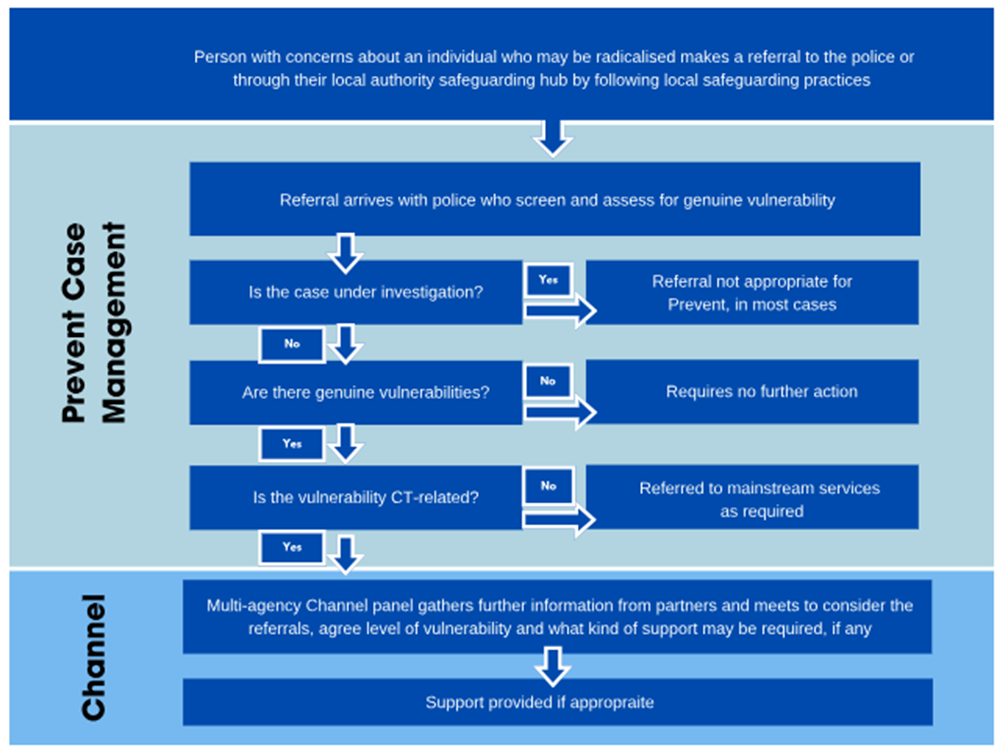Prevent Statement
At Co-op Academy Failsworth, the Designated Safeguarding Lead is Nina Carter and the Deputy Designated Safeguarding Lead is Rhian Devereux.
The Prevent lead is Nina Carter.
This Statement is to be read in conjunction with: The Academy Safeguarding and Child Protection Policy, Prevent duty guidance: for England and Wales (accessible) - GOV.UK (www.gov.uk) and Keeping Children Safe in Education.
Introduction to the Prevent Strategy
Everyone who comes into contact with children, young people and their families has a role to play in safeguarding. Schools and colleges have a duty of care to their pupils and staff which includes safeguarding them from the risk of being drawn into terrorism - this includes not just violent extremism but also non-violent extremism, which can create an atmosphere conducive to terrorism and can popularise views which terrorists exploit. Schools and colleges should be safe spaces in which children and young people can understand and discuss sensitive topics, including terrorism and the extremist ideas that are part of the terrorist ideology and learn how to challenge these ideas.
The aim of Prevent is to stop people from becoming terrorists or supporting terrorism. Prevent also extends to supporting the rehabilitation and disengagement of those already involved in terrorism.
The objectives of Prevent are to:
- tackle the ideological causes of terrorism
- intervene early to support people susceptible to radicalisation
- enable people who have already engaged in terrorism to disengage and rehabilitate
Definitions – Keeping Children Safe in Education (2023)
Extremism - is the vocal or active opposition to our fundamental values, including democracy, the rule of law, individual liberty and the mutual respect and tolerance of different faiths and beliefs. This also includes calling for the death of members of the armed forces.
Radicalisation - refers to the process by which a person comes to support terrorism and extremist ideologies associated with terrorist groups.
Terrorism - is an action that endangers or causes serious violence to a person/people; causes serious damage to property; or seriously interferes or disrupts an electronic system. The use or threat must be designed to influence the government or to intimidate the public and is made for the purpose of advancing a political, religious or ideological cause.
Preventing Radicalisation in School and College
Building resilience in our young people and the promotion of fundamental British values is at the heart of preventing radicalisation. We do this by providing a safe place in which children and young people can discuss issues, and we aim to give them the knowledge and confidence to challenge extremist beliefs and ideologies.
The Prevent duty, is carried out under the Counter-Terrorism and Security Act 2015, which legally requires us to take steps to prevent pupils from being drawn into terrorism. We take this duty seriously and carry out the main actions responsibly, namely: understanding risk, managing risk, sharing information, reducing permissive environments, monitoring and assurance.
If we assess a child as at risk, we will refer to the Channel Programme, which focuses on providing support at an early stage to people who are identified as being vulnerable to being drawn into terrorism.
We recognise that we play a vital role in keeping children and young people safe from harm, including from the risks of extremism and radicalisation, and in promoting the welfare of children in our care.
What we do if there is a concern
If we have a concern about a particular pupil we will follow the school’s normal safeguarding procedures, including discussing with the school’s designated safeguarding lead or member of staff with designated responsibility for Prevent, and where deemed necessary, with children’s social care.
We may also contact the local police force or dial 101 (the non-emergency number). They can talk to us in confidence about concerns and help us gain access to support and advice. In an emergency situation we will follow the recommended emergency procedures.
